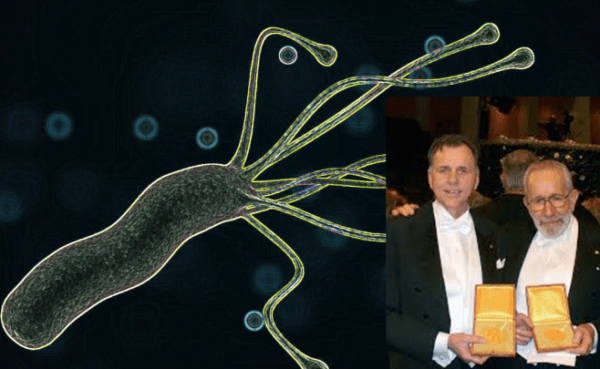
On October 3, 2005, the Nobel Prize in Medicine was awarded to Robin Warren and Barry Marshall, the two Australian scientists who discovered that a bacterium could cause stomach ulcers. They showed that the bacterium Helicobacter pylori plays a key role in the development of stomach and intestinal ulcers and inflammation, revolutionizing the approach to gastroduodenal disease. Thanks to their work, gastroduodenal diseases ceased to be a long-term and disabling problem.
Currently, these diseases can be treated with antibiotherapy. Up until 1982, when Marshall and Warren discovered the H. pyloriit was considered that stress and lifestyle were the main causes of stomach and intestinal ulcers. Today it is known with certainty that this bacterium causes more than 90% of duodenal (intestinal) ulcers and up to 80% of gastric (stomach) ulcers.
Their discovery was accidental, like all great research. One day they left a piece of gastric mucosa in culture and when they returned from their weekend away they found in Petri dishes that the bacteria had colonized the culture. Subsequently, after studying biopsies from patients, Dr. Warren, a pathologist in Perth, Australia, found that the bacteria had colonized the lower stomach in about 50% of the samples taken. He also observed that patients almost always showed signs of inflammation in the stomach lining near where the bacteria were found.
Dr. Marshall, a researcher at the University of Western Australia, became interested in Warren's findings and together they began studying biopsies from 100 patients. After several attempts, Marshall succeeded in culturing in several of these biopsies the hitherto unknown bacterium, which they named Helicobacter pylori and showed that patients were only cured when the bacteria were eradicated from the stomach.
This bacterium is the main cause of peptic ulcers (gastric and duodenal) and is a risk factor for the development of gastric cancer in genetically predisposed individuals. Warren and Marshall's research led to current therapies for the eradication of Helicobacter pylori and gastroduodenal ulcers.